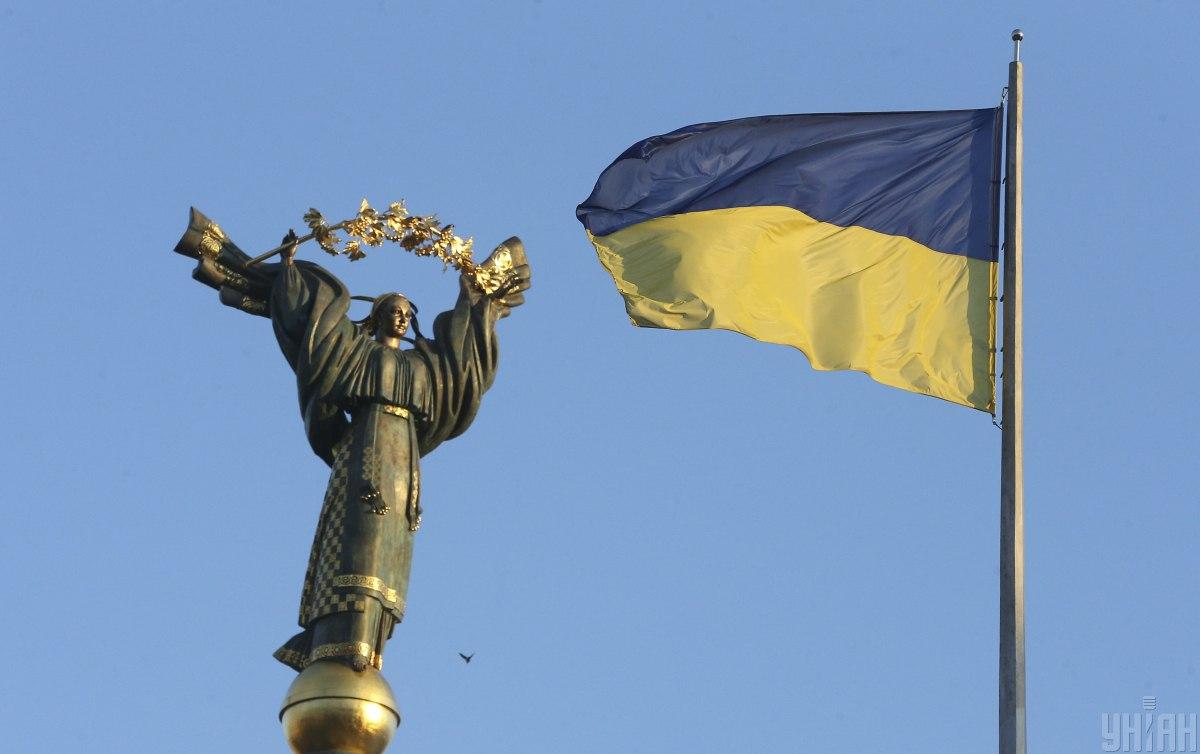
Lukashenko and Putin's world: Ukraine must be ready to fight back without waiting for help
The world is entering the new year facing a host of problems – from needing to overcome the COVID-19 pandemic to tackling new digital challenges. Against this background, it seems that Ukraine cannot count on any special support on the part of its partners in confrontation with Russia.
Back when many countries began to shut their borders due to the COVID-19 pandemic last spring, analysts predicted that the authorities were highly likely set to focus on the internal problems of their respective countries. In fact, that's exactly what happened. Therefore, it's a big question, whether helping Ukraine will remain on the priority agenda of the country's partners.
Unsuccessful Normandy Four meetings
For Ukraine, the year began, among other things, with a regular meeting of advisers to the leaders of Normandy Four. As at the previous meeting in September 2020, the advisers agreed ... to negotiate further.
"Russia did not intend to meet at all if Ukraine wasn't ready to implement the capitulatory Minsk deal in the Kremlin's interpretation. 'The greatest and immortal' Vladimir Putin at his 'brilliant' press conferences said that Russia unambiguously insisted on its own interpretation of 'Minsk'. No compromises… But Russia had to do the meeting because France, and especially Germany, wanted so. And the position of Germany is extremely important for Russia, since Germany retains what's left of chances to launch Nord Stream 2," political analyst Oleksandr Kochetkov said.
But one cannot expect that a full-fledged Normandy Four team – Ukrainian President Volodymyr Zelensky, German Chancellor Angela Merkel, French President Emmanuel Macron, and Russian President Vladimir Putin – will convene for a summit anytime soon. Moreover, it may happen that by the time of such a meeting there will be changes in the list of key actors.
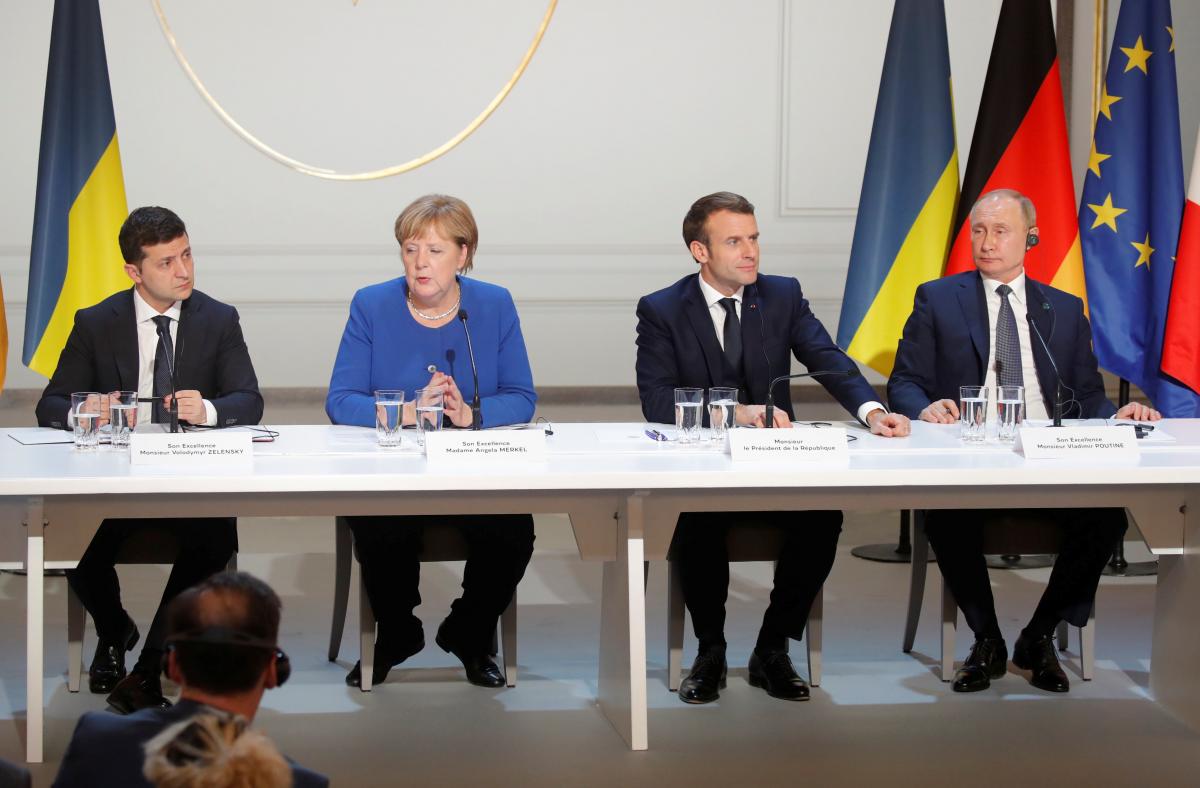
The fact is that in 2021 Angela Merkel is leaving her post. One of these days, her party (the Christian Democratic Union – CDU) is set to decide on their new leader and, as a result, the candidate for the chancellor's post in this fall's elections. The nominees for the post are Prime Minister of North Rhine-Westphalia Armin Lasche, corporate lawyer Friedrich Merz, and foreign affairs expert Norbert Röttgen. And although it is difficult to blame any of them for being pro-Russian, the situation with the impending stepdown of Angela Merkel seems quite alarming from Ukraine.
With a high degree of probability, domestic political issues will dominate for Macron in 2021. Although he is expected to visit Kyiv in the next six months, it is important to understand that next spring France will hold presidential elections, which means that this year the candidates of all stripes will devote to making themselves heard and seen as much as possible. And the problems of distant Ukraine are unlikely to be more important for Macron than the struggle for presidency.
"This is a situation where our partners will have no time for the Normandy format," says Maria Kucherenko, project manager at the Center for Civil Society Studies. "Therefore, Ukraine should draft strategic proposals regarding the work of existing ones, and think over the concept of additional formats."
According to the analyst, it is worth offering these concepts to the German and French partners without looking back at the internal political shifts in these countries: "After all, it is the one who formulates a full-fledged proposal on the dialogue format who will be able to seize the initiative."
If Ukraine continues to act within the framework of tactics we're seeing today – systematic concessions to Russia, the transfer of the political track to the TCG, negotiations in the Normandy format for the sake of simply holding such talks – then Russia has every chance to impose its vision of future settlement and take advantage of the situation when France and Germany will be immersed in domestic political issues, Maria Kucherenko emphasizes .
Today the Kremlin is perfectly okay with the "no war, no peace" situation and the dragging of talks on their merits. Russia has been consistently promoting the ideas of handing Donbas back to Ukraine on terms that are unacceptable to the government in Kyiv. For example, in a phone conversation with Macron in early 2021, Putin once again referred to Russia's aggression in Donbas as an "Ukraine's internal conflict".
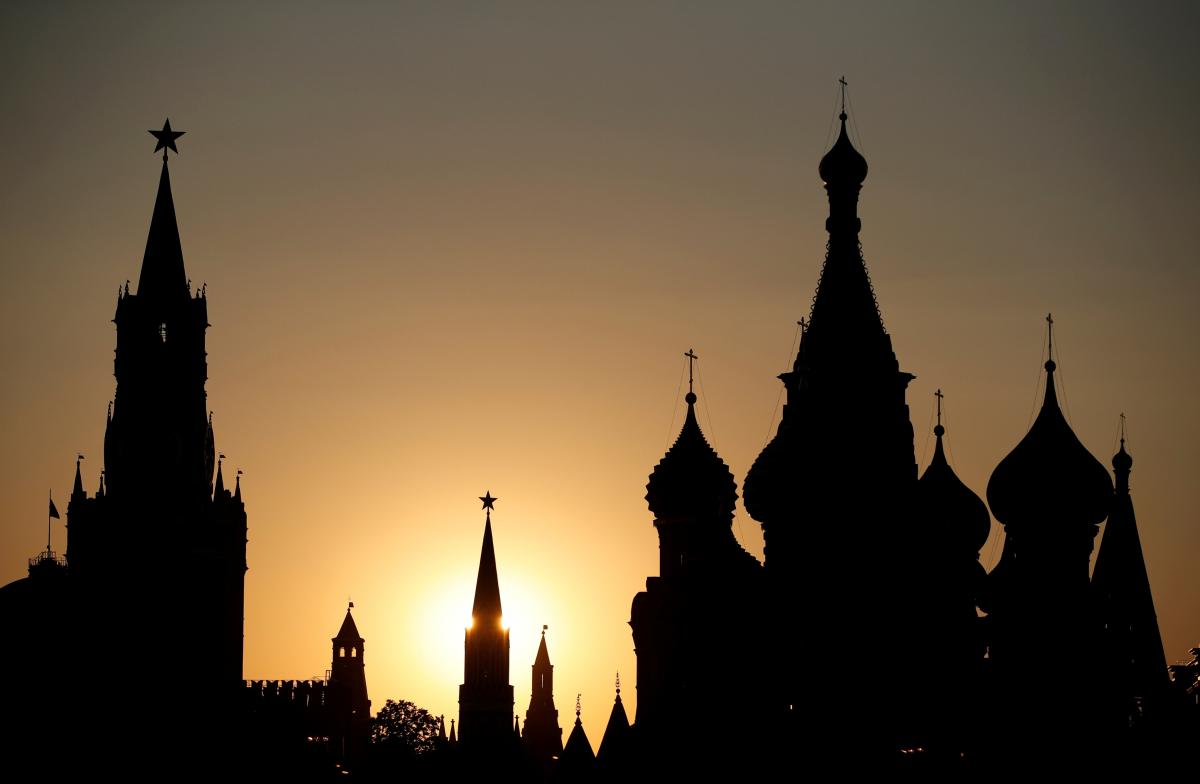
At the same time, Russia continues to put pressure on Alexander Lukashenko over Belarus (another point of instability on Ukraine's border, as NSDC Secretary Oleksiy Danilov put it late last year). Also, Russia supports the already ex-president of Moldova Igor Dodon as leader of the pro-Russian party dominating in the Moldovan parliament, in order to put spokes in the wheels of the newly elected Maia Sandu (since year-start, the hottest topic in Moldova is the so-called "debts" for Russian gas, which the Kremlin has been supplying for free to a rogue Transnistria region)...
Old and new partners
In this situation, Ukraine needs another ally precisely in the negotiation process, and the United States would be the best actor suited for this role, Maria Kucherenko believes. "[We should] practically declare the need to involve the United States in work on settlement through an appeal to the letter of Minsk-2 agreements: after all, the entire political track, as per the deal, should have been implemented back in 2015. It is important for Ukraine to declare that we are not withdrawing from the existing formats, but proposing to create another platform for consultations," she says.
Kyiv should come up with well-grounded and well-worked-ou proposals, says Oleh Belokolos, head of the board at the Maidan of Foreign Affairs Foundation: "And also take into account the fact that Moscow is already actively working in the United States, drawing Washington into negotiations, ranging from issues of strategic stability to climate change."
The foreign affairs expert recalled that the Trump Administration at one time tried to assist Ukraine in the Donbas issue in a separate negotiating format – between U.S. State Department Special Representative Kurt Volcker and Russian President's Aide Vladislav Surkov (at least four meetings were held). Over time, however, this format saw a dead end.
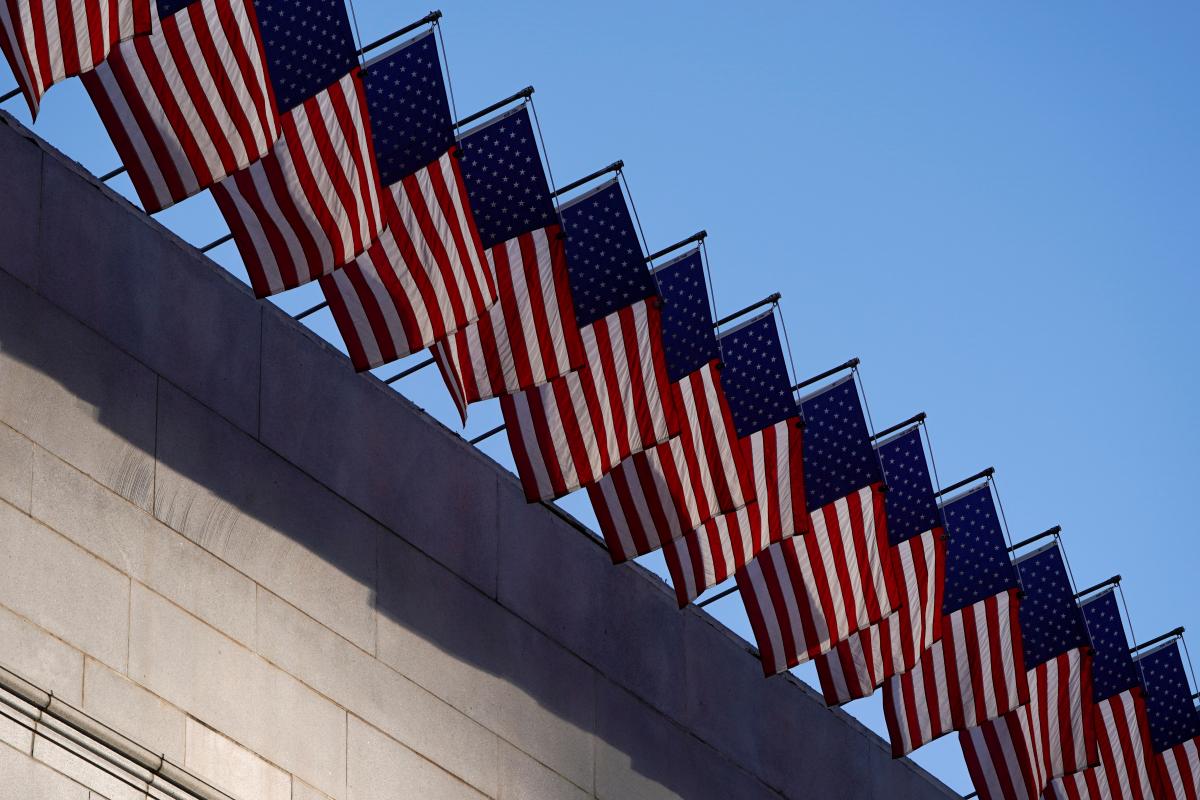
"At the same time, given the steady course of U.S. support for Ukraine (multiple support votes in the UN Security Council, the Crimea Declaration of July 25, 2018, which notes that the United States 'rejects Russia's attempted annexation of Crimea and pledges to maintain this policy until Ukraine's territorial integrity is restored', providing Ukraine with weapons, other assistance, etc.), with a high degree of probability, support from Washington, D.C., will prevail. In what form? Obviously, we should look at the relevant statements by the new Administration," notes Oleh Belokolos.
However, he adds, this is not all about allies: "In the international legal sense, Ukraine has no allies, there are partner states that comprehensively help us repel Russian aggression, in particular the United States, UK, and Canada. There is a group of states that have imposed sanctions and various restrictions against Moscow, in particular the EU member states, Australia, Japan, etc. There is also a group of countries that support us within the UN framework."
Indeed, last year the United Nations platform was really successful for Ukraine. For example, Minister for Foreign Affairs Dmytro Kuleba noted late last year, the UN General Assembly adopted an updated resolution on Crimea, in which it "clearly stated new facts of massive violations of human rights on the temporarily occupied peninsula": "This is the fifth consecutive resolution of the General Assembly on human rights issues in the occupied Crimea and already the ninth one in the context of the international response to the attempt to annex the Ukrainian peninsula by Russia."
More practical things also happened on this platform. For example, at the end of 2020, Ukraine together with its partners managed to thwart Russia's attempt to legitimize the ORDLO (temporarily occupied areas of Donetsk and Luhansk regions) in the UN Security Council. On December 2, ORDLO representatives Natalia Nikonorova and Vladislav Deynego intended to speak at the UNSC Arria meeting. And although such meetings are rather informal, aimed to ensure a frank exchange of views in private (which allows the UN Security Council members to invite such figures as "DPR" and "LPR" militants), Ukraine managed to convince partners in the UNSC to not only boycott the event but also to ban its broadcast on UN media resources.
"This is a clear response to Russia's attempts to manipulate international platforms and formats to circulate their propaganda," Dmytro Kuleba told the Ukrainian media.
According to the top diplomat, the meeting was boycotted by the U.S., UK, France, Germany, Estonia and Belgium – that is, the OSCE participants that are members of the Security Council. All but Russia…
But will it be possible to maintain the "balance of power" in 2021? After all, the UN Security Council consists of five permanent members – the United States, United Kingdom, France, China, and the Russian Federation (the latter two are unlikely to vote in Ukraine's favor), and ten non-permanent actors. Moreover, five of them undergo annual rotation.
In 2021, India, Ireland, Kenya, Mexico, and Norway will replace Belgium, Dominican Republic, Germany, Indonesia, and the Republic of South Africa. Estonia, Niger, Saint Vincent and the Grenadines, Tunisia, and Vietnam will continue to participate in the UN Security Council for another year. It may not be worthwhile to judge prematurely which of them is set to play along with Russia, but it should be recalled though that during the vote for the UN General Assembly resolution on the territorial integrity of Ukraine back in 2014, India, Kenya, Saint Vincent and the Grenadines, and Vietnam abstained...
The OSCE is worth a separate mention. The work of its Special Monitoring Mission in Donbas has repeatedly raised questions, in particular, over the fact that representatives of Russia, the aggressor state that has occupied parts of the Ukrainian territory, are also part of the monitoring effort to verify ceasefire observance.
In 2021, the OSCE is chaired by Sweden. This country's top diplomat Ann Linde, as the OSCE Chair-in-Office, intends to visit Ukraine for the first time next week, in order to assess the situation and support efforts towards a sustainable settlement of the conflict. On the eve of the visit, she noted that among the priorities of her work in the current capacity she sees the resolution to the Belarus and Ukraine's Donbas issues. She emphasized that the OSCE SMM in Ukraine must have full access throughout its territory (as is known, OSCE monitors face hindered access to the occupied areas since neither Russia nor its puppets in the occupied territories are interested in this).
In fact, the Ukrainian Foreign Ministry believes that the visit of the OSCE chair-in-office to Ukraine will allow her to independently assess the consequences of Russia's armed aggression against Ukraine. And besides this, Ukrainian diplomats hope to engage the OSCE in the work of the Crimean Platform. Whether these hopes come true we will find out really soon.
What Ukraine may well hope for succeeding in this year is further rapprochement with NATO. Last summer, the North Atlantic Council granted Ukraine an Enhanced Partner status, bringing the country are one step closer to joining the Alliance.
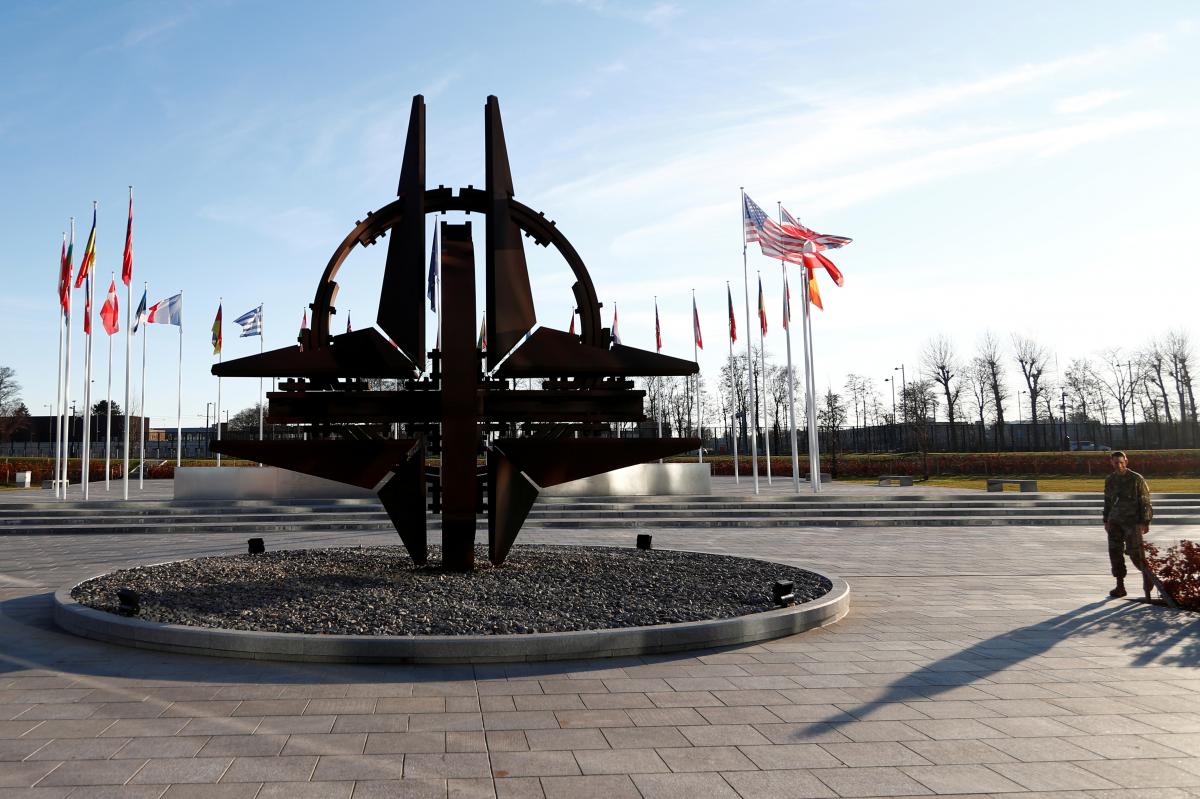
Ukrainian Defense Minister Andriy Taran has already announced that 2021 has been declared the year of Euro-Atlantic transformation in the Ukrainian Armed Forces. Apart from words, however, it is important to continue reform at the legislative level. So if the Verkhovna Rada votes on all the required bills, NATO might as well send a positive signal at the next summit scheduled for the second half of the year as regards Ukraine getting the MAP.
Even despite the fact that most countries are now focused on addressing their internal issues, the year start heralds no bad news for Ukraine on the diplomatic front. Ukrainian diplomats remain optimistic. A number of projects which depend, among other things, on the moves of Ukrainian authorities, may actually be implemented. Also, no rollback should be expected from the already existing international restrictions imposed on Russia. But to hope for new steps in this direction would be somewhat naive. One way or another, today our partners have other problems but Ukraine to address.
Tetiana Urbanska

